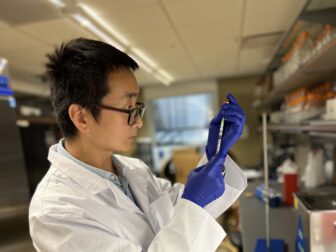Zhimin Huang, PhD

Engineering Noninvasive, Site-Specific Therapeutics for Brain Diseases
Summary
Many brain disorders arise from disruptions in specific brain regions, yet they are often treated with small molecule drugs that spread throughout the entire brain, affecting both diseased and healthy areas. This lack of spatial precision can lead to reduced efficacy and unwanted side effects. To address this, I developed Regionally Activated Interstitial Drugs (RAID), a strategy that uses focused ultrasound to deliver an engineered enzyme directly to selected brain regions. This enzyme locally converts an inactive drug — given to the whole body — into its active form only where needed. Unlike conventional therapies, RAID enables localized drug activation for several days without repeated ultrasound. Preliminary studies have shown successful enzyme delivery, region-specific drug activation, and behavioral changes consistent with the drug’s effects. We now aim to optimize RAID by extending enzyme retention and testing its potential in an animal model of depression. If successful, RAID could provide a noninvasive, long-lasting, targeted treatment for neurological and psychiatric disorders with fewer side effects.
Watch a Q&A with Zhimin
The Faculty Starter Grant in Drug Delivery empowers our efforts to advance noninvasive, site-specific brain therapeutics, bringing us closer to precision treatments that enhance efficacy and minimize side effects. I am grateful to the PhRMA Foundation.

